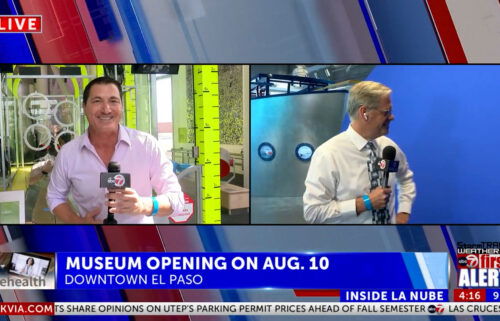Homeless shelters to change policy on impairment
Click here for updates on this story
LAS VEGAS NV (KVVU) — Homeless shelters in Las Vegas will no longer be allowed to bar people from entering if they are under the influence of drugs or alcohol.
The “low barrier” policy is part of a contract between Clark County and any shelter that receives funds from the county.
One of the requirements of the low barrier policy is to remove breathalyzer testing before people enter the shelter.
The idea is to get homeless people housing first, then deal with whatever issue they may have that is keeping them on the street, whether it’s mental health or addiction to drugs or alcohol.
The flip side of that coin is the security risk it poses when people are intoxicated.
“With this many guys in one place, somebody that is unable to control their actions would be more likely to get into a brawl with somebody else,” said Steve Schmitt, Chief Operating Officer for Catholic Charities of Southern Nevada.
Eric Myers has worked in security for 40 years.
He began his career in Washington DC, working at the State Department and the White House.
Now he works security at the shelter inside Catholic Charities.
“Upon entering the shelter we have 500 men that come in daily and we run security screening to ensure the safety of all that come into our confines,” said Myers.
Before people can get access to a shelter bed, they must first walk through a metal detector and have an id card swiped to check for any red flags or prior incidents of misbehavior within the shelter.
“We screen for any type of weapons or prohibited items,” said Myers.
While the new policy prohibits turning people away for being under the influence of drugs or alcohol, exceptions can be made.
“If they are physically getting into altercations with other guests or becoming verbally or physically violent, we immediately contact our friends at Metro and they are very responsive,” said Schmitt.
Please note: This content carries a strict local market embargo. If you share the same market as the contributor of this article, you may not use it on any platform.




